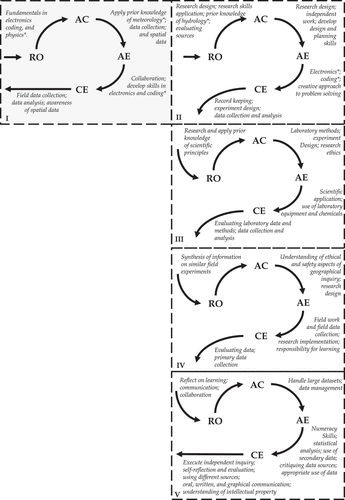Figures & data
Figure 1. The activities appropriate for or already used in Geography that supplement the experiential learning cycle. Adapted from Healey and Jenkins (Citation2000).
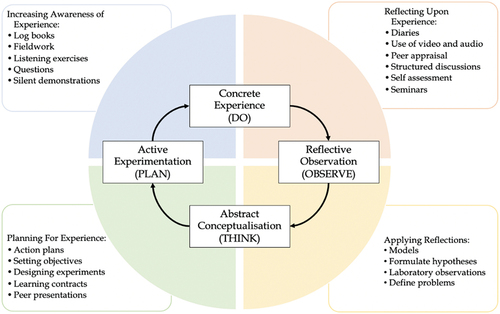
Figure 2. Steps taken during the undergraduate Arduino research project, as outlined in the methodology.
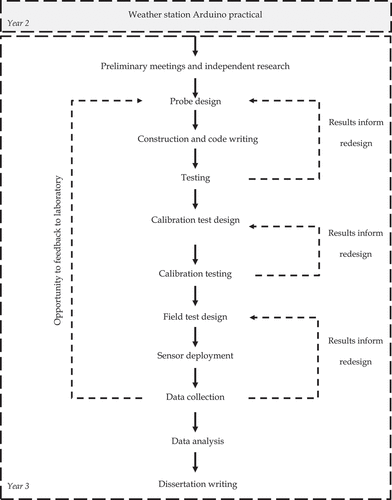
Figure 3a. Second-year Arduino weather station practical transformed into Kolb’s stages of experiential learning. Reflective observation (RO), Abstract Conceptualisation (AC), Active Experimentation (AE), and Concrete Experience (CE).
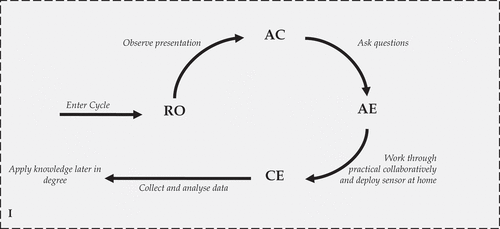
Figure 3b. Counterpart to Figure 3a, showing the transformation of the third-year Arduino project into Kolb’s stages based on the methodology. Reflective observation (RO), Abstract Conceptualisation (AC), Active Experimentation (AE), and Concrete Experience (CE).
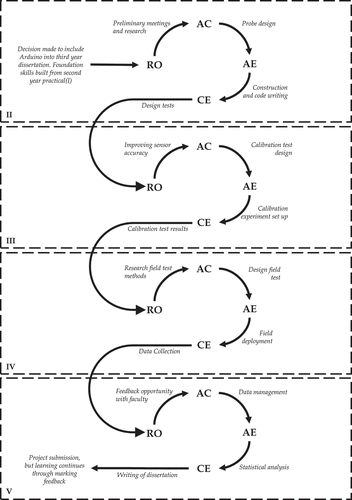
Figure 4. Breakdown of each stage (I–V) of the exercise methodology in , but indicating the skills learned or developed at each stage. Skills marked with an asterisk (*) indicate those that are not specifically included in the Quality Assurance Agency for UK Higher Education benchmarks (Citation2019). Reflective observation (RO), Abstract Conceptualisation (AC), Active Experimentation (AE), and Concrete Experience (CE).
